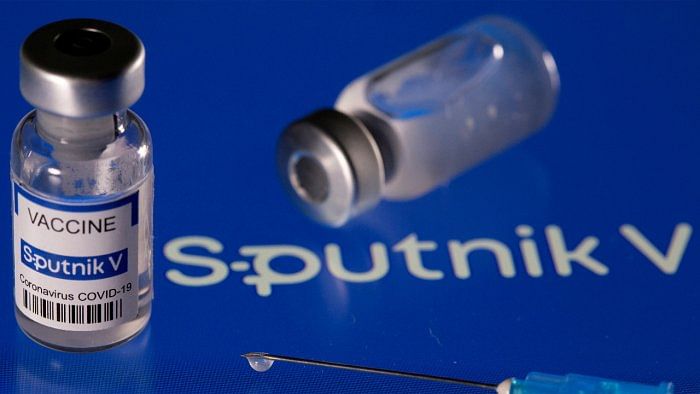
Dr Reddy's Laboratories, the custodian of Russia's Sputnik-V in India, has stated that the availability of 250 million imported doses of the vaccine would begin in this quarter i.e., April to June.
The two-dose vaccine was found to be displaying 91.6 per cent efficacy against Covid-19 infection as per an article in The Lancet. It was approved for emergency use in India by the Drugs Controller General of India on Tuesday, amidst the massive surge in the Covid-19 cases.
The nod comes at a time when the two vaccines - Covishield, developed by Oxford University-AstraZeneca and manufactured by the Serum Institute of India, and Bharat Biotech and ICMR co-developed Covaxin – are in severe short supply in the ongoing nationwide vaccination drive.
"We cannot be more specific at this point (about the time of Sputnik-V import supply to India)," GV Prasad, co-chairman and managing director, Dr Reddy's told DH.
The Hyderabad-based pharma major is in an agreement with Russian Direct Investment Fund to supply 250 million imported doses in India (to fully vaccinate 125 million people). As per the deal in September 2020, DRL also undertook the Phase-2 and 3 trials of Sputnik-V in India, on 1,600 volunteers to verify its safety and immunogenicity. The data was submitted to DCGI.
DRL will also market and distribute the vaccine after its production starts in India in a few months. Hetero, Virchow, Panacea, Gland, Stellis, Shilpa are the six production sites.
DRL top executives said that they are "still in the midst of negotiating the price and required volumes in the country with the government authorities and other stakeholders.”
Covishield and Covaxin, also given in two doses, are priced at Rs 250 each dose in the private sector.
Though the efficacy of Sputnik-V is pegged higher than that of Covishield and Covaxin, a drawback of the Russia's vaccine is its storage requirement at a frosty -18 to -22 degree Celsius temperature. In comparison, Covaxin is stable at 2 to 8°C and is shipped in a ready-to-use liquid formulation that permits distribution using existing vaccine supply chain channels.
Sputnik-V needs to be thawed for about 20 minutes at the vaccine centre and the liquid dose then has to be administered in a period of two hours.
On Wednesday, speaking to the press in a virtual interaction, Dr Reddy's officials said that they are working on storing, transporting Sputnik-V vaccine at 2 to 8 degree Celsius.
“We are in the process of generating additional stability data on the 2 to 8 degree Celsius temperature range. This data should be available in a few months, following which we would submit the necessary amendment request to the regulator for the storage conditions to be modified to 2 to 8 degree Celsius,” said Deepak Sapra, Dr Reddy's CEO (API and Services).
However, the official said that they have lined up a cold chain and necessary logistics to ensure the last mile availability throughout the country by “leveraging some of the existing immunisation programme infrastructure in collaboration with the government.”